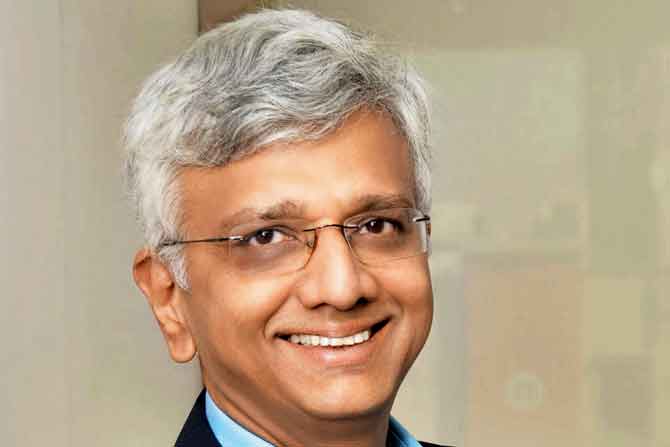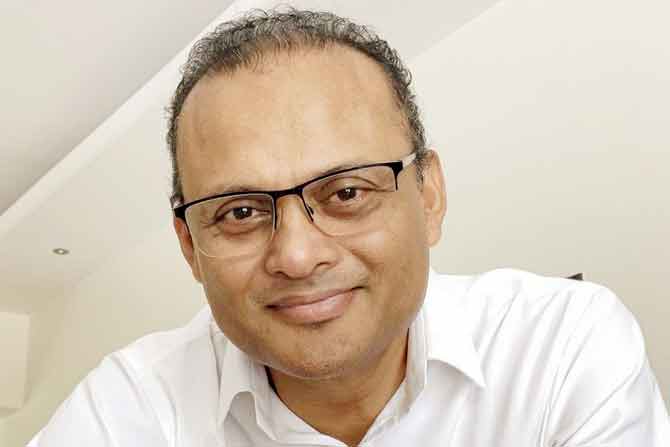It might actually be possible to find one and be one and it might actually be a great thing for your company. Here-s why

Sundar Pichai, CEO of Google, at the festive opening of the Berlin representation of Google Germany in January 2019 in Berlin. Insiders at Google Inc are often quoted saying that its founder Larry Page picked Pichai for his mediation skills. Pic /Getty Im
In a dog-eat-dog corporate world, low ego and high emotional intelligence are both downplayed as too-sensitive, emotional and unimportant soft skills that don-t take you far. But, leadership needn-t always be about inflated self worth, large salaries and constant praise from subordinates—it has equally to do with selflessness and gratitude.
ADVERTISEMENT
Ask Sundar Pichai. Insiders at Google Inc are often quoted saying that its founder Larry Page picked him as the CEO not because he was the smartest or the most visionary, but because at one point, other leaders just couldn-t agree with each other unless Pichai was there to mediate. Apple Inc-s founder Steve Jobs too had selected Tim Cooks as his successor because of his ability to mediate discussions among senior executives in the company.
Brand strategist, author and founder of Brand-Building.com, a brand advisory, Ambi Parameswaran says, "Business press tends to play up CEOs as superheroes and play down those who are unassuming, quiet performers. But, in the long run those with a great deal of humility, coupled with tremendous courage of conviction win the battle." In his book SPONGE: Leadership Lessons I Learnt from my Clients, Parameswaran has spoken about several business leaders who demonstrated a sense of calm during an impending storm, achieving incredible transformations. For instance, Padma Bhushan S Ramadorai, while a CEO at Tata Consultancy Services, faced intense competition and severe criticism from media for being a slow mover. "But, he was preparing the company for a new era, post the IPO. He put the company before himself and, by being a patient listener but a determined persuader, he achieved remarkable changes in the company," says Parameswaran. Another example is from the early 1990s, when RD Aga was changing the company name from Wanson to Thermax—he was so committed to the task, he was willing to sit and re-write the entire body copy of the six-ad campaign and politely offer it to the agency for consideration.

Ambi Parameswaran
Parmeswaran says, "That was not how an MD of a large engineering company was supposed to behave. But what I find intriguing is how he, in his own signature egoless style, demonstrated a great sense of commitment yet with a touch of humility."
Both selflessness and emotional intelligence have become critical during the COVID-19 pandemic. While organisations around the world are facing an uncertain future and business leaders are tasked with the challenge of piloting their companies through choppy waters, Parameswaran thinks it is best that instead of making dramatic announcements or Big Bang changes, business leaders use the power of gentle persuasion to get to a new place. Rushda Majeed, India Representative, Bernard van Leer Foundation, feels that COVID-19 has brought sickness and death in its wake and, with markets, businesses, and development work slowing down, it has also spawned feelings of worry and a sense of pessimism. With many still working from home, now more than ever it is crucial for leaders to keep egos on the side and be understanding towards their colleagues and partners to keep morale and productivity high. A good, egoless leader will always check in on team members and work partners, allowing them to take the time they might need for personal work or issues, communicating support, being flexible with deadlines and accepting suggestions for adapting projects. "This trait has helped us as a team to adapt to the changing landscape, and support each other, while not losing sight of our long-term goals," she adds.

Dr Partha Datta
Dr Partha Datta, president and managing director, Fiat Chrysler Automobiles FCA India believes that a generous, passionate and empathetic CEO makes employees feel secure even during disagreements. "He or she would encourage dissent and rebuttal and would not be intimidated or intensify the fear of failure in an employee. When a leader is apt to blame, quick to become frustrated, or looks for a scapegoat, employees lose trust in the -safe zone-. They feel threatened and insecure, they stop trusting the leader, become less engaged and eventually, the delivery suffers," says Datta. For him, having worked across continents, keeping ego aside has helped him manage inter-disciplinary impasses, inter-departmental conflicts, functional compromises and build inter-company bridges for partnerships to facilitate multicultural relationships such as joint ventures in both high and low context cultures between USA, Europe, India and China.
From her own experience, Majeed feels even leaders who possess a high emotional quotient must acknowledge its importance at their workplace and practice it every single day. "It is similar to hitting the gym—the more you exercise, the greater the chance of you achieving your health goals. Demonstrating empathy every day also makes your style of leadership a model for others. Crucially, practising emotional intelligence in the workplace comes down to building a culture of trust and open communication, allowing others to understand your goals, express ideas and point out pitfalls you might have not considered, do one-s best, and not be afraid to fail," she adds.
Parameswaran adds, "In a crisis situation, when a CEO walks into a boardroom, whatever he says is treated as the gospel. Instead, a humble, selfless leader will listen to everyone in the room and then give his decision. This also gives him or her the opportunity to add or edit what s/he wants to say, based on new information, and not say something that could create havoc in the company."

Rushda Majeed
Majeed says, "Leadership does not mean always being in control, directing others, or showcasing consistent success. Humility is a valuable trait for leaders to imbibe and practice. An inflated ego doesn-t get you far. On the contrary, it might demotivate your team, prevent honest exchanges, and limit your own vision. Allow your team members to express themselves, have the ability to listen [including to critics], focus on bringing out the best in your team, and don-t be afraid to innovate, even if it means setbacks and failures—learn from these, and do things better next time. Such leaders are not only successful, but they often successfully create a legacy."
DIY leadership skills
Dr Partha Datta-s tips to be low on ego and high on EQ
Be an Enabler: Don-t be afraid to enable the success of others and help break constraints for others
Self-awareness: Recognise your own limitations, control the negative ones
Self-motivation: Take the high road. Drive towards your key goals, ignore pettiness
Earn Trust and Respect: Be respectful towards everyone across designations. Focus more on kindness than rightness
Catch up on all the latest Mumbai news, crime news, current affairs, and a complete guide from food to things to do and events across Mumbai. Also download the new mid-day Android and iOS apps to get latest updates.
Mid-Day is now on Telegram. Click here to join our channel @middayinfomedialtd and stay updated with the latest news
 Subscribe today by clicking the link and stay updated with the latest news!" Click here!
Subscribe today by clicking the link and stay updated with the latest news!" Click here!






